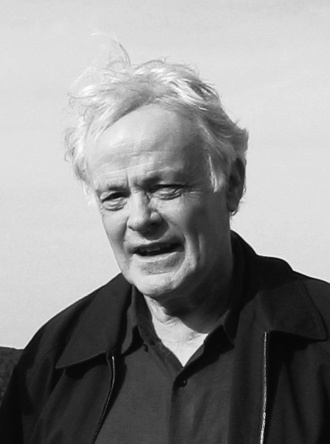(FT) Heated words have no place in a post-cold war world
 The Financial Times published a commentary by Sir Rodric Braithwaite, UK ambassador to the USSR and Russia from 1988-1992, and author of "Moscow 1941" (a very good read). The author focuses on the issues that have surfaced a lot among political commentators in Russia but have not found a solid foothold in the Western press. Sir Rodric blames the misunderstanding and the harsh language coming from US, European and primarily Russian governments and parliaments on the desire to stir "things up with intemperate language designed to please their own domestic audiences, regardless of the effect on the outside world." Here are a few more excerpts:
The Financial Times published a commentary by Sir Rodric Braithwaite, UK ambassador to the USSR and Russia from 1988-1992, and author of "Moscow 1941" (a very good read). The author focuses on the issues that have surfaced a lot among political commentators in Russia but have not found a solid foothold in the Western press. Sir Rodric blames the misunderstanding and the harsh language coming from US, European and primarily Russian governments and parliaments on the desire to stir "things up with intemperate language designed to please their own domestic audiences, regardless of the effect on the outside world." Here are a few more excerpts:
It is partly a matter of disappointed love. We have come a long way from the hopes that seemed to unite Russia and the west after the Soviet Union collapsed. Two years ago Mr Putin described that collapse as “the greatest geopolitical catastrophe of the century”. He was greeted by a storm of criticism in the west: was the Russian president really calling for the return of the old regime? Was the spectre of Stalin stalking Europe yet again?
It was more complicated than that. After 1991, the Russians lost in short order their ancient empire, military pride, political system, ideology and economy. Millions fell into such poverty that former enemies sent them food aid, accompanied by well-meant but often inappropriate advice about building a liberal market democracy from the ruins. This was an overwhelming trauma, even for Russians who were delighted to see communism go. After years of humiliation, most are glad that Mr Putin’s Russia has now recovered some of the respect to which they believe their country is entitled. <...>
<...>Most of Mr Putin’s countrymen thoroughly dislike the corruption, the antics of the super-rich, the arrogance of politicians and bureaucrats, the influence of the secret policemen, the abuse of the courts and the gross failure to enforce the law that disfigure their country’s domestic politics. They may know in their hearts that Mr Putin’s version of “stability” has come at a price. But they still resent the constant lectures from foreigners. Whether we like it or not, most Russians believe that events in Iraq and elsewhere have thoroughly undermined our democratic credentials and our right to give them lessons.






1 comment:
Braithwaite's right--and you're right, too:
I'm an American conservative, though I think the Iraq War easily one of the most unnecessary and foolishly-planned conflicts in our history. On a bit of a different note, when the Cold War ended--or so our politicians said it ended--I thought it incredibly arrogant of our leaders to gloat over the economic misery that followed in the wake of the USSR's crash. For the life of me, I can't understand why we issue such heated and heedless rhetoric the Russians' way particularly now, precisely when we could vitally use their assistance in the war on terrorism.
On Braithwaite's "Moscow: 1941"--
Good book, indeed, though I think he's a bit too easy on Stalin at times. Too bad the Politburo didn't toss Stalin out on his head the moment party bosses visited his "Nearby Dacha" as the Germans were crossing the Soviet frontier. Who knows just how cordial western relations with Moscow might have become had different Soviet leadership assumed control in that long-ago summer of 1941.
Post a Comment